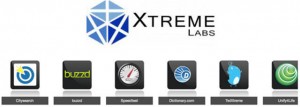Pivotal’s First Acquisition
Ajit Deshpande - October 11, 2013 - 0 Comments
 Back in May, we had discussed the launch of Pivotal, the EMC family’s take on PaaS. Well, Pivotal last week made a small but interesting acquisition of Toronto-based mobile development and strategy shop Extreme Labs for $65 million in cash. Extreme Labs has approximately 300 employees, and has built mobile apps for companies such as Groupon and Microsoft among others. In early 2012, EMC had acquired San Francisco based agile software development shop Pivotal Labs, which is also where the Pivotal name came from. Pivotal Labs’ strong developer teams had for over 20 years collaborated with client personnel to develop custom, scalable software solutions for clients willing to pay top dollar. Extreme Labs has a similar modus operandi in the mobile app development arena. Thus, Extreme Labs helps Pivotal fill out the mobile services piece of its ‘choice’ oriented approach towards helping customers build the right PaaS for their needs.
Back in May, we had discussed the launch of Pivotal, the EMC family’s take on PaaS. Well, Pivotal last week made a small but interesting acquisition of Toronto-based mobile development and strategy shop Extreme Labs for $65 million in cash. Extreme Labs has approximately 300 employees, and has built mobile apps for companies such as Groupon and Microsoft among others. In early 2012, EMC had acquired San Francisco based agile software development shop Pivotal Labs, which is also where the Pivotal name came from. Pivotal Labs’ strong developer teams had for over 20 years collaborated with client personnel to develop custom, scalable software solutions for clients willing to pay top dollar. Extreme Labs has a similar modus operandi in the mobile app development arena. Thus, Extreme Labs helps Pivotal fill out the mobile services piece of its ‘choice’ oriented approach towards helping customers build the right PaaS for their needs.
Big data broadly speaking is about three dimensions – volume, velocity and variety. The more visible PaaS offerings, such as AWS, Azure and OpenStack-based implementations, provide abstraction across all three of these dimensions. However, the focus for Pivotal seems to be large, traditional enterprises (such as GE, which invested $105 million), where the near term focus might be more on volume and velocity than on variety. Hence the Greenplum-based data engine, the focus on the industrial internet etc. These also are the kind of customers with whom the EMC sales engine could help close deals effectively. This means serious competition for the likes of IBM, Dell, Deloitte and Accenture, and that too driven by folks out of VMware, Pivotal Labs, Extreme Labs etc., who know what it takes to develop consumer-grade mobile and internet architectures. For PaaS or cloud middleware entrepreneurs on the other hand, the takeaway may be different – the opportunity to start with SMBs and to eventually move up to large PaaS deals might be going away soon, if not already. The opportunity instead might be in developing PaaS offerings optimized around usability, domain-specificity, configurability and cost for resource-constrained SMBs, and in scaling through increased breadth of offerings over time. This isn’t necessarily easy – PaaS was never really a friendly arena for entrepreneurs when compared to SaaS. So for entrepreneurs offering middleware/PaaS but not yet taking this approach, maybe it is time for a pivot?